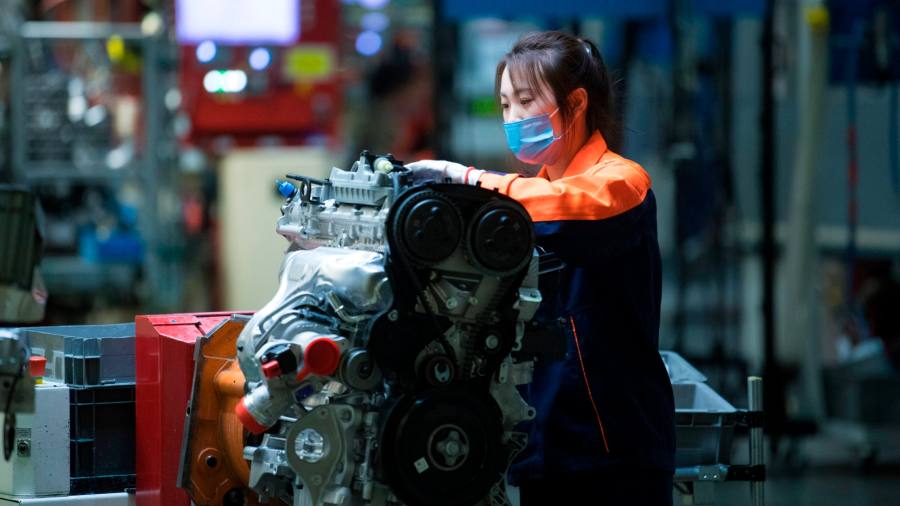
Volvo Cars has downgraded its delivery targets for the year because of lockdowns in China, while rising costs and the need to buy semiconductors on the open market cut its profits during the third quarter.
The Swedish carmaker, backed by China’s Geely, had expected wholesale deliveries would remain flat this year compared with 2021.
But on Thursday it said it was now forecasting “slightly lower wholesale volumes than 2021, assuming no further major supply chain disturbances”.
Closures in China were the “biggest issue by far” for the business, said chief executive Jim Rowan, with some suppliers shut for up to 70 days at a time.
The “sporadic” nature of the closures, which hit Volvo’s suppliers in China and affected the supply of parts to the carmaker’s plants in Europe and the US, make it “difficult for us to predict the end of” the impact from Chinese lockdowns, he said.
The company has been trying to move the sourcing of parts to Europe and the US to cut its reliance on Chinese components. It is also building a factory in Slovakia to increase European production, and is starting to produce key components for its electric cars itself.
About 12 per cent of the cars Volvo sold in September were electric, a figure it hopes to increase to 50 per cent by the middle of the decade.
Rowan said the company was expecting to announce deals in the coming months to increase its supply of lithium and other materials vital to production of electric cars.
In the third quarter, car sales fell 8 per cent to 138,000 vehicles, but revenues rose a third to SKr79.3bn ($7.3bn) after it raised prices to pass on some of its higher costs.
Net income fell 70 per cent to SKr700mn. Volvo’s profit margin dropped from 7.1 per cent to 4.4 per cent, or from 5.5 per cent to 2.6 per cent once its stake in lossmaking electric carmaker Polestar was included.
The company has been forced to buy some of the chips it needs for its vehicles on the spot market, where prices are much higher. Rowan said the amount it bought in this way was falling.
“The issues around semis have steadily declined through the year,” he said. “There are still some that are in short supply, and if you want these, then you need to . . . be in the spot market.”
Despite economic pressures, the company said demand was strong, with few orders being cancelled. “We’re keeping a really beady eye on that, you would think in the macro environment you would start to see new orders at a lower level . . . but we are seeing a strong order book across the entire globe, especially on battery electric products,” he said.